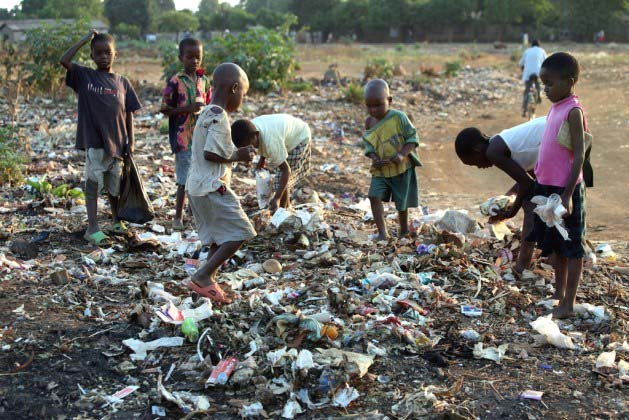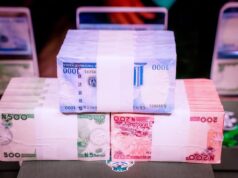“Budget fraud, procurement fraud, embezzlement of funds among other illegal actions, lead to failure in the delivery of services including education, water and health. People living in poor neighbourhoods have suffered so much that they consider poor service delivery as being good enough.”
This was the submission of the Socio-Economic Rights and Accountability Project (SERAP) in a new 61-page report.
The report revealed how “widespread and systemic corruption in ministries, departments and agencies (MDAs) especially in the education, health and water sectors are plunging millions of Nigerians further into poverty.”
The 61-page report launched recently at the Radisson Blu Hotel, Ikeja, Lagos, is titled: The Ignored Pandemic: How Corruption in the Health, Education and Water Sectors is Plunging Nigerians further into Poverty.
The report presented to the media by Dr. Elijah Okebukola, discloses that “61% of people living in poor neighbourhoods ranged between having no formal education and senior secondary education.”
According to the report, “Corruption contributes to poverty and consequential suffering of people living in poor neighbourhoods. 57.30% of people living in poor neighbourhoods were youths of between 18 and 35 years old. Poor people are victims and not perpetrators of corruption in the health, education and water sectors.
“Many of the 36 states in Nigeria have no documented policies for helping people living in poverty or people earning low income to have access to health, education and water. Even if these policies existed, they were not known to the public officers who serve the people living in poor neighbourhoods.”
The report urges President Muhammadu Buhari to “promptly propose an executive bill to amend the Nigerian Constitution of 1999 [as amended] to recognize Nigerians’ socio-economic rights, including the rights to an adequate standard of living, education, quality healthcare, and clean water as legally enforceable human rights.”
The report also urges the Buhari administration to “ratify the Optional Protocol to the International Covenant on Economic, Social and Cultural Rights, which allows individuals and groups whose socio-economic rights are violated to access international accountability mechanism in the form of the Committee on Economic, Social and Cultural Rights.”
The report, read in part: “93.20% of people living in poor neighbourhoods were younger than 60 years old. People living in poverty were mostly self-employed (57.20%) or unemployed (20.10%) and were living in extreme poverty. Those who were unemployed outnumbered the combined number of those who worked for the government (8.30%) and private sector (7.20%).
“48.90% of people living in poverty, that is, more than 27,453,154 earned less than N100,000 per annum. 27.9 per cent, that is more than 15,663,456 earned between N100,000 and N200,000 per annum.
“10.70% earned between N201,000 and N300,000 per annum. 12.50% earned more than N300,000 per annum. 65% of people living in poor neighbourhoods stayed in either one-bedroom or two-bedroom accommodation. Up to 4% of people living in poverty, that is, about 2,245,657 had physical disabilities.
“Crowded living conditions heightened the need for water. Only 19% of people living in poor neighbourhoods got water from governmental providers. Majority of poor people who received water from the governmental providers were satisfied with the quality of water they got.
“79% of people living in poverty, that is more than 44,351,722, did not get water from the governmental public water provider. 50.14% of people living in poverty, that is, 22,237,953 people relied on personal wells or boreholes for water supply.
“23.96%, that is more than 10,626,673 of people living in poverty got water from streams or rivers; 10.51% got water from neighbours’ houses; and 1.54% received water from other sources.
“54% of respondents who had access to water from a governmental source did not pay to connect their residences to a public water source. 93% of respondents that paid for connection to a public source water provider, made their payments in cash. Despite the absence/inadequacy of learning tools, infrastructure and other relevant resources, people living in poor neighbourhoods believed that good quality education was provided in their schools.
“About 34% of people living in poverty, that is, about 19,088,083 did not use governmental medical facilities at all. 5.2% of people living in poverty, that is, more than 2,919,354, who went to governmental medical facilities, were denied medical treatment in the last one year.
“52% of the people living in poverty who were denied treatment at governmental medical facilities, that is, more than 1,518,064, were turned away because of inability to pay for treatment.
“39% of the people living in poverty who were denied treatment at medical facilities, that is more than 1,138,548, were turned away because of the lack of equipment or bed-space.
“Only 4.20%, that is, about 2,357,940 of people living in poverty, had received any direct poverty alleviation donation or support from the government in the past one year.”
- Army detains 2 soldiers over theft of cables in Dangote Refinery - April 17, 2024
- EFCC to Nigerians: Obstruct our operations, risk 5 years in jail - April 17, 2024
- Alleged N80.2bn fraud: EFCC sets to arraign Yahaya Bello April 18 - April 17, 2024










